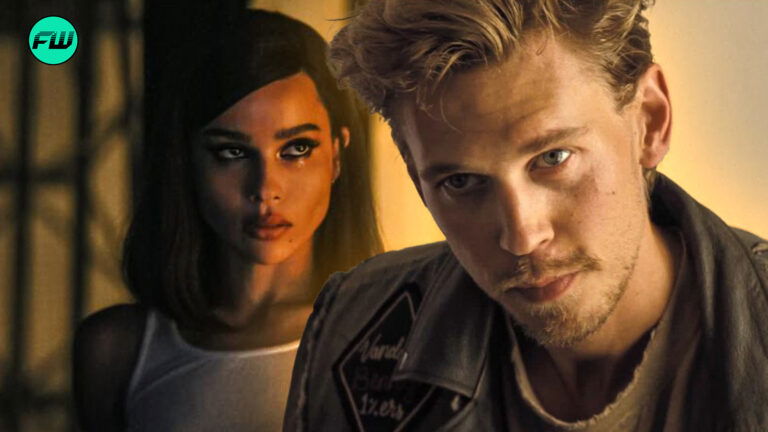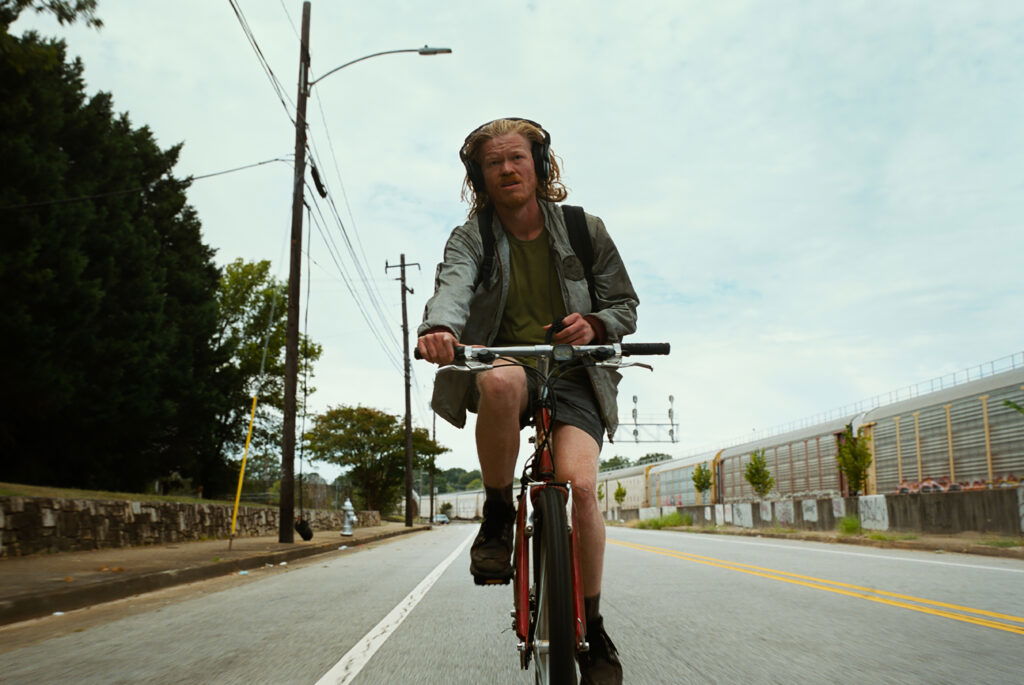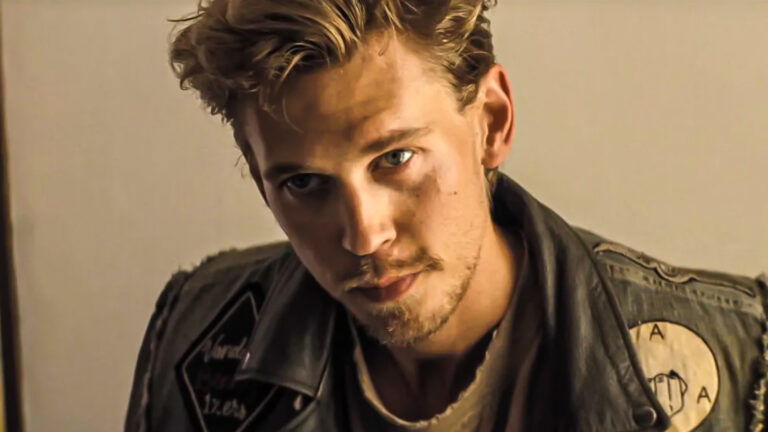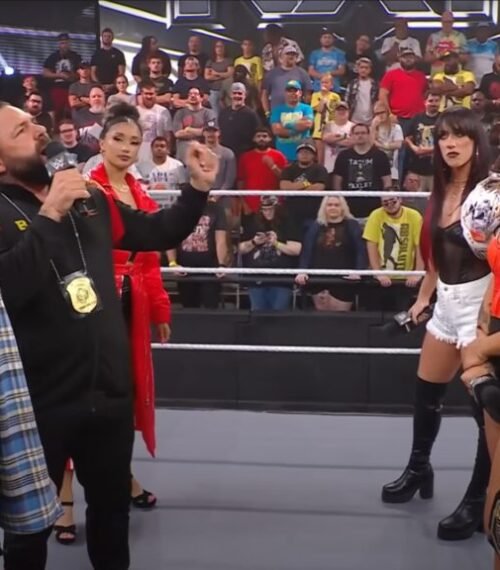With every new project from filmmaker Yorgos Lanthimos (Poor Things), my expectations are inevitably high. He’s a director who, regardless of the final product, never fails to deliver something unique and original from a technical and narrative standpoint. I’ve increasingly appreciated his ability to dive into stories with a deeply cynical yet consistently implicit gaze. I had no prior knowledge about Bugonia, only about its main actors, Emma Stone (La La Land) and Jesse Plemons (Civil War). Furthermore, it’s a remake of the 2003 South Korean film, Save the Green Planet!, with a screenplay by Will Tracy (The Menu).
The film centers on Teddy (Plemons), a conspiracy theorist obsessed with bees and the threats humanity faces. Together with his cousin Donny (Aidan Delbis), Teddy is convinced that Michelle Fuller (Stone), a powerful CEO of a major pharmaceutical company, is actually an alien planning to annihilate planet Earth. His plan involves kidnapping Michelle and conducting an intense session of captivity and interrogation to force her to confess her origin and reverse her destructive agenda.
Bugonia review

What immediately stands out in Bugonia is the absolute excellence of Plemons and Stone’s work. For the latter, it no longer seems like a surprise, but rather a rule, that the actress delivers a high-caliber performance, always deserving of awards or, at least, the usual buzz. Here, Stone embodies Michelle with a calculated coldness and arrogance that mirror the very corporate insensitivity Teddy despises. The CEO is the personification of parasitic capitalism, so inhuman in her pursuit of power that, to Teddy, she can only be of another species. Her physical transformation and her unshakeable demeanor solidify Stone as a true force of nature, regardless of the role.
However, it was Plemons who surprised me most. Accustomed to seeing him in more contained roles, his interpretation of Teddy is anything but: it’s intense, frantic, and deeply emotional. Plemons grips his character’s paranoia, transforming his conspiratorial madness into something strangely tangible, even in the most absurd moments. His interpretation serves as a study on the spiral of extremism fueled by personal trauma and the internet’s echo chamber. This dynamic between Plemons’ convincing hysteria and Stone’s unyielding toughness is, undoubtedly, the main engine of Bugonia
On a technical level, the movie holds up well with Lanthimos’ usual collaborators. Jerskin Fendrix’s score is notably loud and intense, functioning as an extra character that punctuates the tension. Robbie Ryan’s cinematography, with its wide shots and its lingering close-ups on the actors’ faces during monologues, continues to be a visual asset, offering an unmistakable style. The pacing is well-controlled, though I admit the middle section becomes slightly repetitive as the interrogation dynamic prolongs.

Who Is the Director of ‘Caught Stealing’? Austin Butler, Zoë Kravitz Movie Director’s Career Has a Combined 11 Oscar Nominations
Nevertheless, it’s in the exploration of its central themes that I felt Bugonia fails to achieve the mastery of Lanthimos’ previous works. The film addresses the topic of humanity’s crimes against the world, the scourge of corruption, pollution, and social conflicts. The problem is that this exploration is done in a very explicit, discursive, and sometimes even slightly moralistic manner. Lanthimos, who usually manages to interweave deep critiques implicitly and naturally through character actions and arcs —- like the power dynamics in The Favourite or the distorted innocence in Poor Things — here seems to feel the need to deliver didactic monologues about the state of the world. The messages, while valid, seem to be something we’ve heard countless times, failing to offer a fresh perspective on environmental deterioration or social inequality that would elevate them beyond the generic.
Another point that prevented me from fully connecting with Bugonia is how Teddy’s past trauma is handled. The trauma is clearly the catalyst for his character and his descent into paranoia — in particular, his mother’s health status (Alicia Silverstone). Lanthimos applies his usual technique here: show, don’t tell, and we can understand what happened through visual suggestions. However, since this is such a fundamental piece in the foundation of Teddy’s unregulated persona, it would have benefited from greater depth. If the narrative had invested more time in allowing viewers to feel his suffering, rather than just rationally understanding it, the intensity of his spiral of madness would have been much more engaging.

The narrative is also built around a binary mystery — is Michelle an alien or not? — but the way the story unfolds makes the outcome somewhat predictable. The promised ambiguity isn’t fully realized, and I felt the most obvious resolution was the only one that, in the end, made sense or maintained narrative interest.
Finally, the presence of Donny, the third character in the captivity dynamic, adds a layer of sensitivity and complexity that left me with mixed feelings. His vulnerability seems to illustrate the danger of failing to listen to or respect the fragility of others, suggesting that exclusion and lack of attention can contribute to their own decline. While his arc ends impactfully, the way his manner of speaking and acting is occasionally played for comic relief or momentary laughs is something I disliked, making his representation a sensitive and questionable point.

Austin Butler Rules Out Playing James Bond but Might Still Fit the Franchise
Is Bugonia worth watching?
Bugonia functions primarily as a stage for the memorable performances of Jesse Plemons and Emma Stone, who carry the movie with intensity and charisma. Although Yorgos Lanthimos maintains his cohesive visual style and the tonal balance between black comedy and violence, the discursive and predictable approach to its central themes — humanity, corruption, paranoia, inequality — prevents it from achieving the complex resonance of his best films. Something didn’t quite click in the narrative execution, but it remains a peculiar and entertaining experience, albeit with a short-lived thematic impact. It leaves us with the message that, sometimes, the most fearsome monsters don’t come from space, but rather from the reflection we find in the mirror.
Bugonia releases in theaters on October 24.





